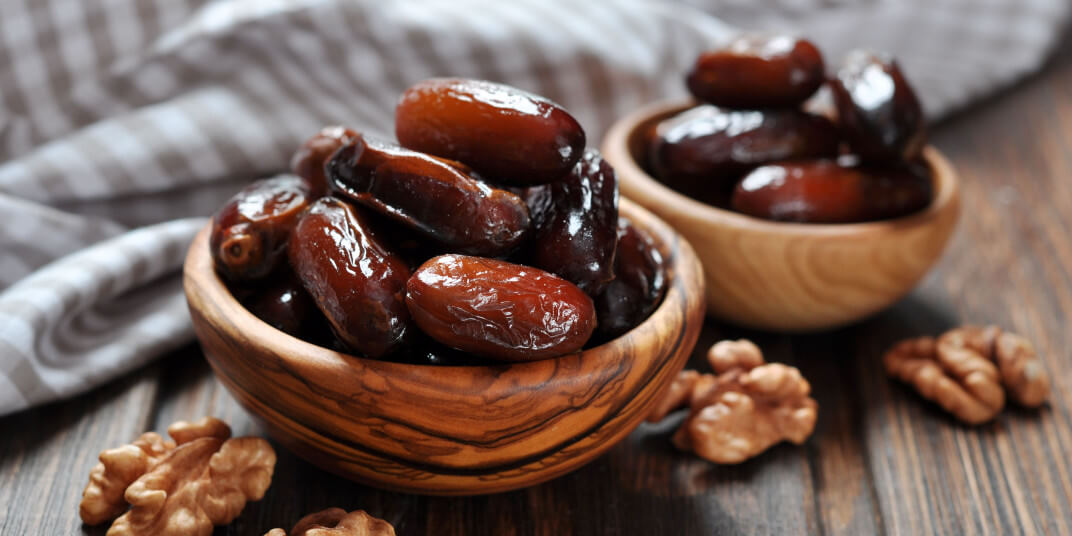Newswrap: Islamic lifestyle
A summary of the latest Islamic lifestyle news from around the world.
Ramadan and the significance of dates
Dates are a staple of Ramadan, with hundreds of millions of Muslims breaking the fast by munching on a date. The Indian Express features an historical overview of the importance of the fruit, pointing out that a Hadith states that the Prophet Mohammed would break the fast with a ripe date.
"For any religion that originated in deserts, like Islam, dates are naturally going to be a part of its central identity. Any long journey in deserts, just like the journey of [the Prophet] Muhammad from Mecca to Medina, definitely involves dates. Thus, Muslims consume dates because they are religiously significant in Islam. Dates are not native to India and many other parts of the world, but you find them here because people consume them as a cultural marker," said Krish Ashok, author of Masala Lab: The Science of Indian Cooking.
Dates are a nutritional and healthy fruit, having antioxidants, and being high in iron, calcium and phosphorous. Dates "help boost the energy levels, being naturally rich in sugars like glucose and fructose,” said Ashok. “Due to the presence of soluble fibre, dates provide a better satiety value which can prevent one from over-indulging in food after breaking fast. Dates also support better digestion and lower the chances of an upset stomach after consuming large amounts of food post fasting."
Saudi Arabia to host first Islamic Arts Biennale in 2023
The Diriyah Biennale Foundation has announced its inaugural Islamic Arts Biennale will take place in Jeddah in early 2023, reported Vogue Middle East. Curators include Dr Saad Alrashed, a leading Saudi scholar and archaeologist; Dr Omniya Abdel Barr, architect and Barakat Trust Fellow at London’s Victoria and Albert Museum; Dr Julian Raby, Director Emeritus of the National Museum of Asian Art, Smithsonian Institution, Washington DC; and Johannesburg-based Sumayya Vally, co-founder of the experimental architecture and research firm, Counterspace. “It is a great honor to announce our Islamic Arts Biennale, the first of its kind,” Aya Al-Bakree, the Diriyah Biennale Foundation’s CEO is quoted as saying. “Our Islamic Arts edition will work with leading practitioners and curators to present a contextual display of artworks and installations curated thematically. It will enable broad audiences to experience and learn about Islamic civilizations and their ongoing legacies within the arena of arts.”
Qatar to create three major new museums
Three new museums were announced at the 2022 Doha Forum as the country re-ignites investment in cultural institutions, reported USA Art News. New projects include the Art Mill, which will feature contemporary art exhibitions and performance galleries, the Lusail Museum, to house Oriental paintings, drawings, photographs, sculptures, rare texts, and applied art, and the Qatar Automobile Museum. Dadu, the Children's Museum of Qatar, is currently under development.
29th International Quran Exhibition held in Tehran
Following a two-year hiatus, the 29th International Exhibition of the Holy Quran, with the theme “Quran, Book of Hope and Peace,” is being held in Tehran for two weeks. Covering 18,000 square metres, more than 2,500 institutions are featured in 45 sections, including “Society and civilization building Mosque”, “Quranic Cultural Works and Handicrafts”, “Quranic Sounds and Tones”, “Cultural Models”, “Translation of the Quran”, “Cyberspace and the Knowledge-based Culture”, “Jihad of Enlightenment”, “Promoting the culture of Nahj al-Balaghah”, “Quranic family and lifestyle”, “Adolescent”, “Garden of verses”, “Quranic-based Consultations”, “Religious written and digital publications”, “Chastity and hijab”, “Servants of Quran”, and “Religious arts”.
Islamic Civilisations Museum opens in Istanbul
The Islamic Civilizations Museum has opened in Istanbul, featuring 800 artifacts from Islamic civilizations, including the belongings of the Prophet Muhammad and the first copies of the Quran, reported Daily Sabah. Run by the Turkish Grand People’s Assembly’s (TBMM) Directorate of National Palaces, the 10,000 square metre museum has collections from the Topkapı Palace and Palace Collections Museum, the Turkish and Islamic Arts Museum, the Istanbul Archaeology Museum, the Istanbul Tombs Museum and the Foundations Museum. The collection covers the development of Islamic art from the seventh to the 19th centuries, and has 15 thematic sections.
